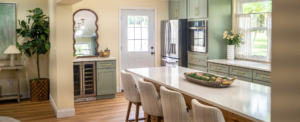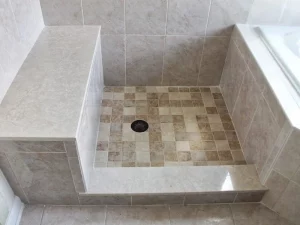What Flooring Is Best For Kitchens?
In this video transcript, Brad of Home Love Construction discusses the best flooring options for a kitchen. He advises that when remodeling a kitchen, it is better to replace the flooring at the same time to avoid problems with the cabinets. There are three major flooring options that can be installed in a kitchen; hardwood, ceramic/porcelain tiles, and luxury vinyl planks.
Brad recommends not installing engineered hardwood in the kitchen, especially the older-style, as they tend to expand and contract when they get wet, leading to bubbling, warping and damages. In cases where homeowners prefer hardwood, there are new waterproof-engineered hardwood products in the market that can withstand moisture.
Ceramic/porcelain tiles are one of the best options for kitchen flooring. Porcelain is better than ceramic because it is denser, harder and more scratch-resistant. They can last for a long time and are ideal for homes with pets and kids. However, ceramic tiles can be easily identified by the red on the back, while porcelain is usually labeled as glazed porcelain.
The other major player is luxury vinyl plank flooring. Brad notes that some people still have an outdated view of vinyl being peel-and-stick, but these products are now completely waterproof, with a click-and-lock system that is similar to laminate. However, it is important to be aware of the product’s wear and tear, particularly if it is an earlier version.
In comparison to porcelain tiles, luxury vinyl plank flooring’s wear and tear lifespan is lower. The wear layer on the earlier products is relatively thinner, and it may take less time to show scratches. When moving heavy kitchen appliances during renovation, there is a possibility of wear marks appearing on the vinyl surface.
Another factor to consider when choosing kitchen flooring is budget. Ceramic/porcelain tiles are generally more expensive than luxury vinyl planks. Brad emphasizes the need to consider the costs and benefits of each option.
There are some critical mistakes that homeowners make when selecting kitchen flooring. For example, they may choose a material that is not water-resistant, which is crucial for kitchens since spills are bound to happen. It is also important to consider the product’s stain resistance.
In conclusion, the best flooring option for your kitchen is dependent on your preferences, budget, and the wear and tear on the material. Ceramic/porcelain tiles and luxury vinyl planks are better options than engineered hardwood. Brad advises homeowners to visit a showroom to get a better look at the different materials and to consult with professionals to make informed decisions.

 Previous Post
Previous Post Next Post
Next Post


